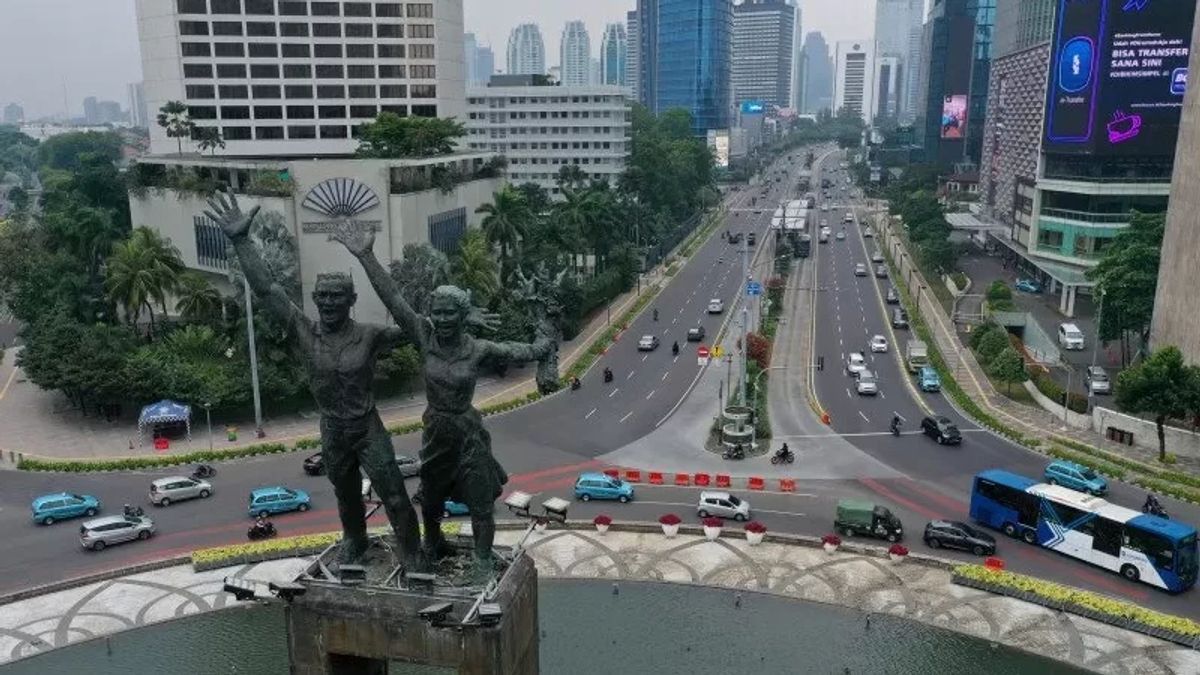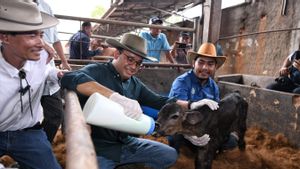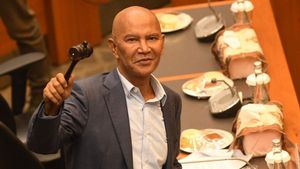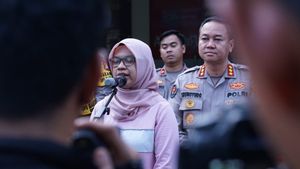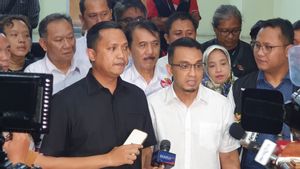JAKARTA - The General Chairperson of the NasDem Party has opened his voice about the rules regarding the Governor and Deputy Governor of Jakarta appointed by the President of the Republic of Indonesia which is announced in the Draft Law on Special Regions of Jakarta (RUU DKJ).
In the plenary session of the second trial of 2023, the NasDem Faction was one of 8 factions that approved the DKJ Bill to be ratified as a proposal for the DPR initiative with a note.
In its faction record, NasDem wants regional autonomy to be given at two levels, namely provinces and districts/cities and filling positions carried out democratically through regional elections for regional heads and deputy regional heads, and through general elections for the Provincial DPRD and Regency/City DPRD.
On that basis, Paloh ordered the NasDem faction of the DPR RI to refuse to ratify the rules for the appointment of regional heads in Article 10 of the DKJ Bill in the discussion at the next level.
"Ordered the NasDem Party faction to reject the DKJ Bill along the clause of the Gububernur DKJ election mechanism to be handed over directly to the Presidential officials," Paloh said in his statement, Thursday, December 7.
Paloh emphasized that the formulation of the clause that the appointment of the Governors of DKJ through the direct election mechanism by the President was a rash step, did not observe democratic life, and hurt the sense of political justice of citizens, especially citizens of Jakarta.
So, Paloh thinks that the practice of direct regional elections that have been running so far, especially in the city of Jakarta, should continue as it should.
"Pilkada is one of the mechanisms built for the realization of democracy in our political life. So this political practice, which is the mandate of the '98 Reform, should be changed arbitrarily," he explained.
In line with Paloh, presidential candidate number 1 Anies Baswedan also disagreed with the rules regarding the Governor and Deputy Governor of Jakarta appointed by the President of the Republic of Indonesia.
As a former governor of DKI Jakarta for the 2017-2022 period, Anies views Jakarta as a province with a fairly high level of democracy. The DKJ Bill, according to him, has even pushed back democratic freedom.
"This is ironic. A city that is very mature in democracy should be a model for freedom of democracy. Do not let democracy back down," Anies told reporters in Lampung.
The Law on the Special Region of Jakarta Province (RUU DKJ) was officially approved as a proposal for the DPR RI initiative. One of the rules, namely Article 10, states that the Governor and Deputy Governor of DKJ are appointed, appointed, and dismissed by the President by taking into account the DPRD's proposal or opinion.
The decision was made in the 10th Plenary Meeting of the DPR RI Session Period II of the 2023-2024 Session Year at the Parliament Building, Senayan. The draft preparation of the DKJ Bill was previously discussed at the Legislation Body (Baleg) of the DPR RI.
Deputy Chairman of the Legislation Body (Baleg) of the DPR RI Achmad Baidowi alias Awiek clarified that the DKJ Governor-Deputy Governors were elected by the President of the Republic of Indonesia to emphasize the particularity of Jakarta after its status was no longer the nation's capital.
"In particularity given, we agree that the most important priority is in the government system," said Awiek at the Parliament Complex, Senayan, Jakarta, Tuesday, December 5.
Then, to bridge the political desire between those who want specialties to be directly appointed from this rule, the DPR added that the rules that the appointment and dismissal of the Governors of DKJ pay attention to the opinion of the DPRD.
The middle way, according to Awiek, remains based on the principles of democracy. Because the election, even though it is not direct, still goes through a mechanism from the DPRD.
"That's the democratic process there. So it's not completely the democratic process is gone. Because democracy doesn't have to mean direct elections. Indirect elections also mean democracy. So when the DPRD proposes, there the democratic process, so not everything just disappears," said Awiek.
SEE ALSO:
The English, Chinese, Japanese, Arabic, and French versions are automatically generated by the AI. So there may still be inaccuracies in translating, please always see Indonesian as our main language. (system supported by DigitalSiber.id)
Most Popular Tags
#Prabowo Subianto #golkar #Pilkada Dki #online gambling #Mount Lewotobi malePopular
24 November 2024, 03:15
24 November 2024, 02:40
